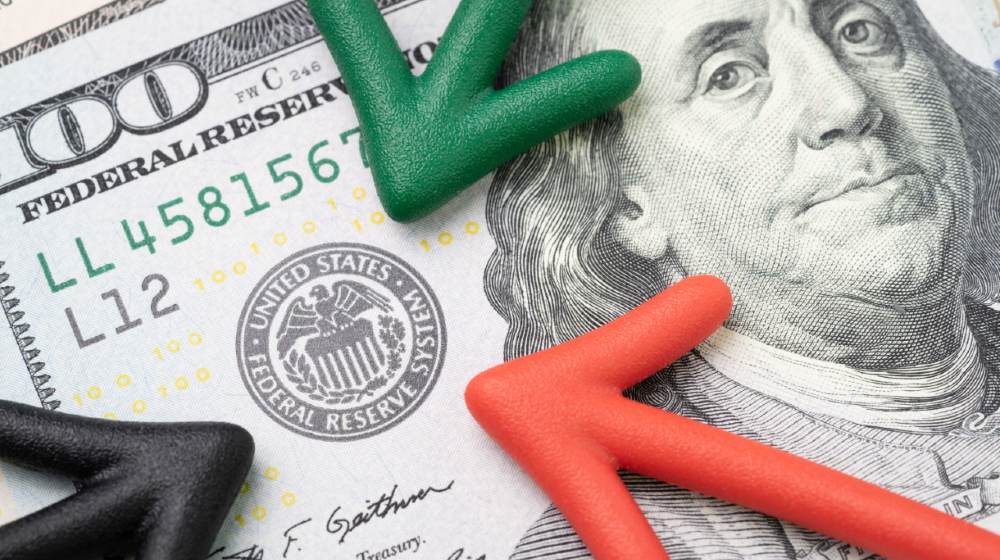Business
Fed: Interest Rates Will Likely Stay Low for Years

Fed Chairman Jerome Powell said that interest rates will likely stay low for years. This reflects the Federal Reserve's view that the US economy will need all the help it can get. And that it will take time before it manages to get back to normal.
RELATED: The Dollar Index Is Falling, You Can Thank the Fed for That
In an NPR interview last Set 4, Powell said: “The economy is now recovering.” He added “But it’s going to be a long time, we think…the economy’s going to need low-interest rates, which support economic activity, for an extended period of time. It will be measured in years.” He added that “However long it takes, we're going to be there.
Even with the ballooning federal debt, Powell suggests that this is not the time to worry about it. He said that “The time to start working on fiscal sustainability is not right now when we have so many people in need.”
The Fed's Policy Change
The Fed recently announced a major shift in how the central bank will deal with the economy. While the agency will focus on job growth, it will not avoid raising interest rates. This aims to guard against expected inflation when there is low unemployment. The agency has directed that inflation above the Fed's 2% target is permissible for a period of time. This means there any increase in inflation will not mean an immediate hike in rates.
Powell explained that they realized unemployment can go lower without causing higher inflation. He noted that the Fed will not withdraw the support the economy needs even if the job market is up.
Powell noted that “While many jobs have come back, as many as 11 million people aren't back to work yet.” These unemployed include workers in the hotel, entertainment, and travel-related sectors. He said that “those maybe some of the harder jobs to find because there are some parts of the economy that will take longer to recover.
High Inflation Was Never the Problem
Asked to share how low inflation can be a problem, Powell shared the contrast between the 1970s and today. He said that while we are aware that high inflation can be a problem, low inflation can be a problem, too. He added that this is less obvious and intuitive. “When inflation is very, very low, it means lower interest rates… And if people expect inflation to be very low, then interest rates will keep going down. When interest rates get very low, the Fed will have less room to cut interest rates to support the economy. That means that unemployment will be higher, more of the time. It means less attractive economic outcomes.” To top it off, Powell said those burdens “tend to fall most on those who are least able to bear them.”
The Fed Chairman explained that today's issues were never about high inflation. He said “It's been more than 25 years since we had as high as 3% inflation for a year. And inflation, remember, was 10% in the 70s. So inflation — high inflation — has not been a problem in the United States. It's a different economy. The challenges have changed. The challenge now is how to get to full employment, how to keep us close to full employment. And part of the way we need to do that is to keep inflation at 2%. And most of the time we're going to be pushing up rather than down.”
Getting Back to Full Employment
Asked how and when will the US economy go back to normal, Powell believes the recovery is ongoing. He admits that it may take a few more months to realize the pace by which the economy is recovering. He is certain that healing in the job market is underway. To get back to full employment, he says that controlling the coronavirus is essential. He suggests that short of arriving at a vaccine is following social-distancing measures. He said “Those things actually enable people to go back to work and not get sick. So it's really important that we do those things.” Powell believed that there are economic gains nationwide if people stay healthy.
Watch this as CNBC's Steve Liesman joins ‘Closing Bell' to talk about Federal Reserve Chairman Jerome Powell’s statement that interest rates will stay low for years:
With the job market growing, hiking interest rates usually follow to fight inflation. But now, the Fed allows inflation to rise while interest rates stay low. And it plans so for the next few years until the economy stabilizes. Do you agree with this strategy, or do you prefer the way things were? Let us know what you think by commenting below!















